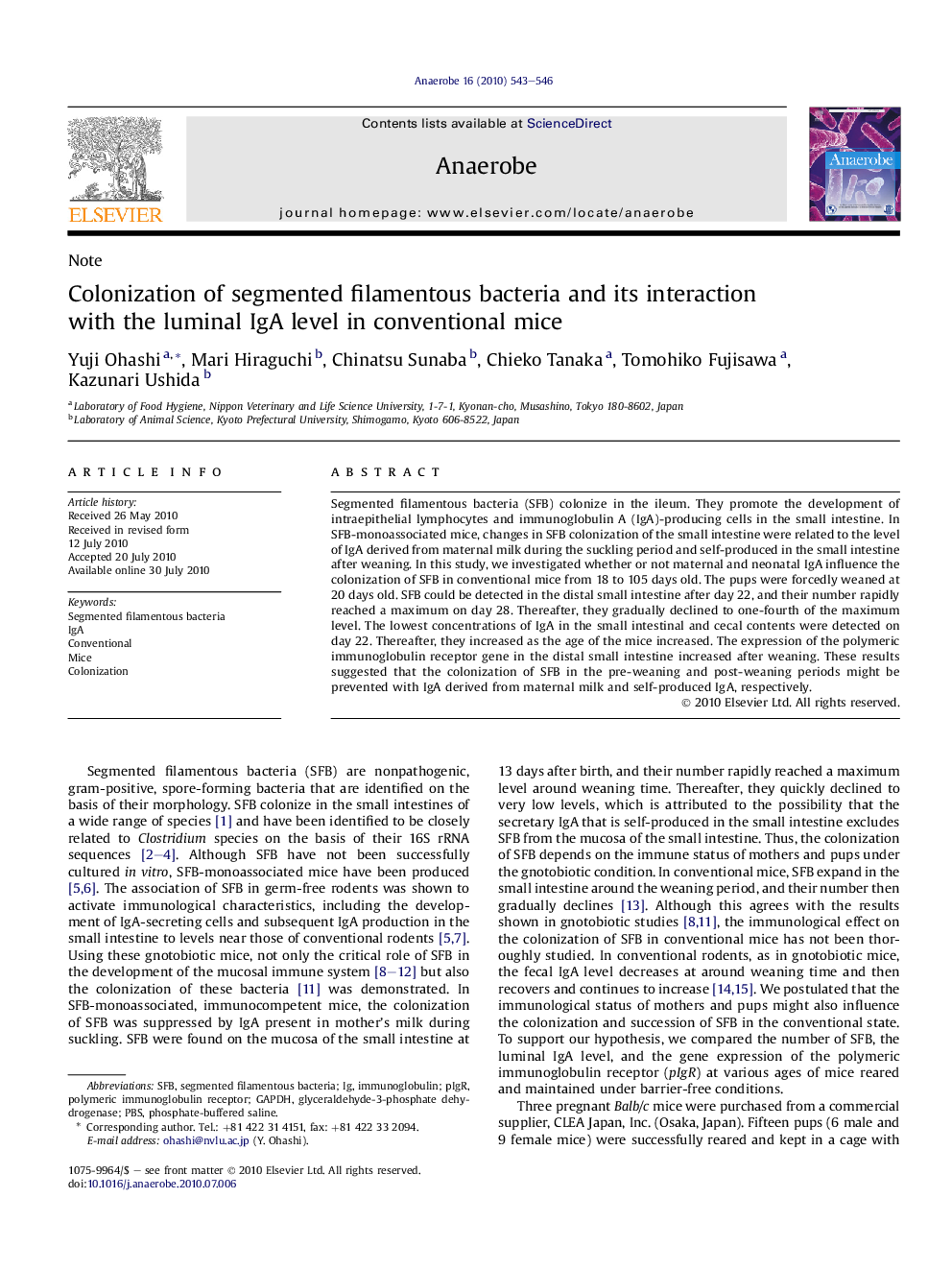| Article ID | Journal | Published Year | Pages | File Type |
|---|---|---|---|---|
| 3395595 | Anaerobe | 2010 | 4 Pages |
Segmented filamentous bacteria (SFB) colonize in the ileum. They promote the development of intraepithelial lymphocytes and immunoglobulin A (IgA)-producing cells in the small intestine. In SFB-monoassociated mice, changes in SFB colonization of the small intestine were related to the level of IgA derived from maternal milk during the suckling period and self-produced in the small intestine after weaning. In this study, we investigated whether or not maternal and neonatal IgA influence the colonization of SFB in conventional mice from 18 to 105 days old. The pups were forcedly weaned at 20 days old. SFB could be detected in the distal small intestine after day 22, and their number rapidly reached a maximum on day 28. Thereafter, they gradually declined to one-fourth of the maximum level. The lowest concentrations of IgA in the small intestinal and cecal contents were detected on day 22. Thereafter, they increased as the age of the mice increased. The expression of the polymeric immunoglobulin receptor gene in the distal small intestine increased after weaning. These results suggested that the colonization of SFB in the pre-weaning and post-weaning periods might be prevented with IgA derived from maternal milk and self-produced IgA, respectively.
